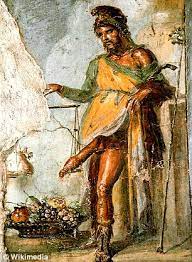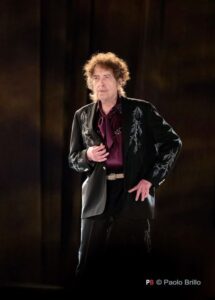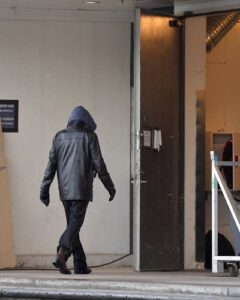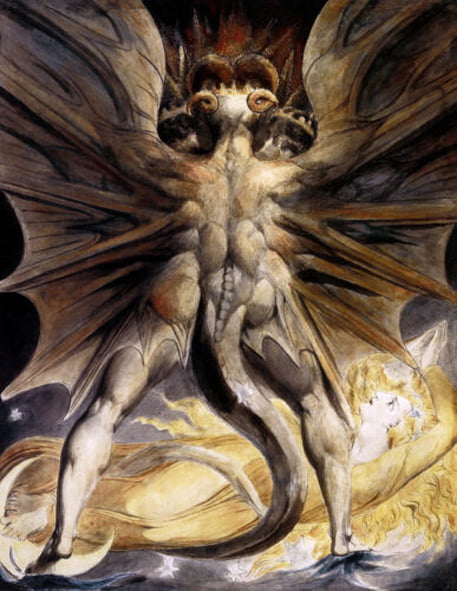Hi folks, this is an extract from my recent book DETERMINED TO STAND: THE REINVENTION OF BOB DYLAN
Do enjoy!!!
—————————————–
…The size of your cock will get you nowhere…..
Black Rider appears…
Black Rider, from Rough and Rowdy Ways, consists of a direct address to an ominous figure which Dylan performs against the sparse but highly atmospheric backing of a single, flamenco-flavoured acoustic guitar. The track is reminiscent of some of the more intimate cuts on his ‘Sinatra’ albums such as Melancholy Mood or Some Enchanted Evening (which is referenced here). It is a near-spoken recitation, with judicious use of dramatic pauses. Subtle variations in tone are used to convey confusion, surprise, jealousy, shock, sarcasm and anger. It sounds like it has been recorded in a large and empty room, using natural echo on the vocals. At one point one can hear what sounds like a penny dropping to the ground in the distance. This creates a suitably eerie effect, as if what we are really listening to is a conversation which is being amplified within an echoey ‘cavern’ of the narrator’s mind.

Dylan’s Black Riders
There has naturally been much speculation over the identity of the ‘rider’. It may be tempting, given the frequent apocalyptic references in Dylan’s work, to identify him with the third horseman of the apocalypse from Revelations, the bringer of famine who rides a black horse. Perhaps he is even the third ‘rider’ who did not appear in All Along the Watchtower. Some commentators have concluded that Dylan is conducting a conversation with death. Or perhaps the narrator could be addressing the Devil, contemplating a Faustian pact. The song is not, however, a comic gothic fantasia like My Own Version of You. The language used is surprisingly straightforward, with only very sparing use of metaphor or symbolism. As the character and nature of the ‘rider’ shifts continually, Dylan uses subtle variations in tone to convey confusion, surprise, jealousy, shock, sarcasm and even anger, without ever over-emoting.

At first, this dark figure does not seem to have a particularly threatening presence. The first lines of the song: …Black rider, black rider, you been livin’ too hard/ You been up all night, have to stay on your guard… depict the narrator, feeling worse for wear after a ‘rough night’, staring into a mirror and examining the lines under his eyes. …The path that you’re walking is too narrow to walk… he warns …Every step of the way, another stumblin’ block… But then the background of the image in the mirror suddenly changes …The road that you’re on, same road that you know… the narrator tells him …Just not the same as it was a minute ago… Dylan’s use of dramatic pauses creates an impression of uncertainty, as if the narrator is unsure whether he should feel pity or fear. The rest of the song appears to consist of a conversation between the narrator and this haggard, hung over version of himself. The black rider is a kind of shape shifter, reflecting the narrator’s changing moods. Every time the narrator looks in the mirror, the image of the rider changes.

You Fell Into the Fire…
In the second verse, there are no pauses within the lines. Dylan’s tone is now a little more assured: …You’ve seen it all… he tells the rider …You’ve seen the great world and you’ve seen the small… The diction is a little awkward here, as if the narrator is nervous in the figure’s presence. But then he becomes rather fevered: …You fell into the fire and you’re eating the flame… and then even slightly apprehensive: …Better seal up your lips if you want to stay in the game… The image he now sees in the mirror, as he realises the extent to which the ‘black rider’ has damaged himself, is literally hellish. He pleads for mercy: …Be reasonable Mister, be honest, be fair… In the final line of the verse he seems to be closing his eyes and trying to wish the vision away: …Let all of your earthly thoughts be a prayer… Dylan emphasises the last three words by slowing down and stretching out the syllables, conveying what sounds like real fear for the first time.

…One of These Days, I’ll Forget to Be Kind…
Despite the narrator’s efforts to ‘walk away’ it is clear now that he is under the rider’s spell …I’m walking away… he declares …You try to make me look back… He continues, rather pathetically to plead: …My heart is at rest, I’d like to keep it that way/ I don’t want to fight, at least not today… Then he becomes decidedly petulant: …Go home to your wife, stop visiting mine… he tells him. Then he whispers: …One of these days, I’ll forget to be kind… The threat is barely veiled, if rather unconvincing. But it is clear by now that the black rider is a version of himself which he is ashamed of – the one who goes home to his wife. There are strong intimations that the wife may be being abused or mistreated and that the narrator is trying to avoid responsibility for indulging in this fantasy.
There is a short instrumental break, with the Spanish guitar helping to create an atmosphere of intrigue and tension, as if we are in some bar in Mexico awaiting a shoot out. The narrator begs the rider to release him from the ‘spell’ he has cast on him: …Tell me when, tell me how/ If there ever was a time then let it be now… he cries …Let me go through… he implores him… open the door… confessing that …My soul is distressed, my mind is at war… The rider is whispering smooth reassurances in his ear, but he attempts to resist: …Don’t hug me, don’t flatter me, don’t turn on the charm/ I’ll take out a sword and hack off your arm… We can tell that the singer is, like the narrator of Standing in the Doorway, afraid to ‘go through the door’ that is in front of him. Or, like the narrator of Forgetful Heart, he may be wondering …if indeed there ever was a door…

In the final verse, the narrator sobers up. He decides to face up to the rider. He begins by insulting his manhood: …Black rider, black rider, hold it right there/ The size of your cock will get you nowhere… For a moment, the image in the mirror changes. The black rider has become Priapus, a mythical figure from Greek mythology who is cursed by Hera, the wife of Zeus, to have to carry a permanent (and extremely outsize) erection. Anyone who has ever been to Greece will have seen ‘rude pictures’ of Priapus depicted in post cards or on ‘souvenir’ ash trays. But the narrator is not cowed by this.

On the Job too Long…
…I’ll suffer in silence, I’ll not make a sound… he promises …Maybe I’ll take the high moral ground… He still sounds uncertain. But perhaps he will be able to acquire the moral strength to resist the rider’s allure. In order to do so he will ‘summon up’ help from songs he puts trust in. Dylan delivers two allusions in quick succession: …Some enchanted evening, I’ll sing you a song…. refers back to the tragically haunted ballad that Dylan covered on Shadows in the Night …Black rider, black rider… he concludes …You been on the job too long… The last phrase is the refrain of the traditional murder ballad Duncan and Brady. It seems to suggest that the narrator now realises that he may be able to rid himself of this spectre that stares back at him from this dark mirror of his soul. But there is no obvious resolution here. The narrative is frozen, and we are left with the image of the narrator and the black rider still staring at each other, as the final syllable of ‘long’ slowly fades away into a ghostly ‘Sun Studios’ echo.




Leave a Reply